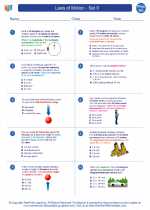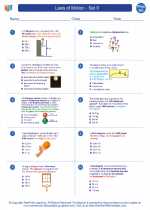What is Mass?
Mass is a fundamental property of an object that measures the amount of matter it contains. It is a scalar quantity, meaning it only has magnitude and no direction. The SI unit of mass is the kilogram (kg).
How is Mass Measured?
Mass is typically measured using a balance or a scale. The most common instrument for measuring mass is the electronic balance, which measures mass by comparing the gravitational force on the object to the force on a standard mass. Another common method is to use a triple-beam balance, which has three beams that allow for fine adjustments to measure mass.
Mass vs. Weight
It's important to distinguish between mass and weight. Mass is the amount of matter in an object, while weight is the force of gravity acting on an object. Weight is directly proportional to mass, but it also depends on the gravitational field strength. The formula for calculating weight is W = mg, where W is the weight, m is the mass, and g is the acceleration due to gravity.
Importance of Mass
Mass plays a crucial role in various scientific fields, such as physics, engineering, and chemistry. In physics, mass is a key parameter in understanding an object's inertia, momentum, and gravitational interactions. In engineering, mass is important for designing structures, machinery, and vehicles. In chemistry, mass is essential for stoichiometry and understanding chemical reactions.
Study Guide
- Understand the concept of mass as a measure of the amount of matter in an object.
- Learn how to measure mass using a balance or scale.
- Be able to differentiate between mass and weight, and understand the relationship between the two.
- Practice solving problems involving mass, weight, and gravitational force.
- Explore real-world applications of mass in various scientific and engineering contexts.
◂Physics Worksheets and Study Guides High School. Laws of Motion - Set II

 Worksheet/Answer key
Worksheet/Answer key
 Worksheet/Answer key
Worksheet/Answer key
